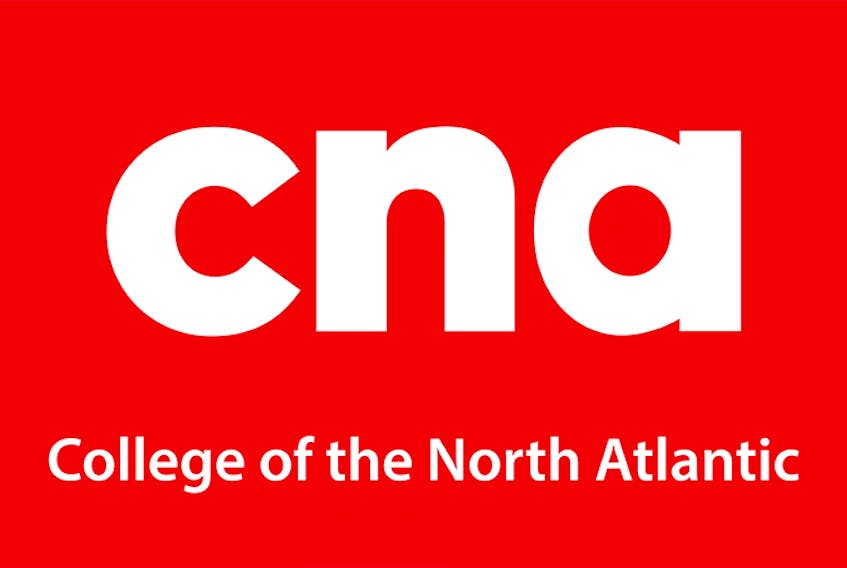A failed attempt by the College of the North Atlantic (CNA) to get a “tactical advantage” in an ongoing class-action suit brought by a number of former employees of CNA’s Qatar campus is insulting to the employees, according to their lawyer.
James Hughes told The Telegram that from his clients’ perspective, and in the “context of access to justice, good faith and honesty,” the approach taken by CNA in the case is offensive.
“Notwithstanding there is no longer a counterclaim (by CNA), the attempt to suggest one exists and utilize it to gain a tactical advantage to frighten people from joining the class proceeding is troubling on many levels,” Hughes said.
The issue is described in a June 6 decision of the Court of Appeal of Newfoundland and Labrador. That decision strikes down CNA’s counterclaim in a class action brought by several employees — instructors or instructor support staff — who worked for CNA in Qatar during the years 2008 to 2011.

The Appeal Court decision — written by Justice Lois Hoegg and concurred by Justices Gale Welsh and Francis O’Brien — found that the counterclaim did not comply with the provisions of the Class Actions Act and does not meet the statutory criteria.
Of note in the decision is a statement that, “CNA frankly acknowledged at the appeal hearing that its reason for counterclaiming rather than pleading the defence of set-off (in which money owed can be subtracted from awarded damages) was that counterclaiming gave it a tactical advantage over the class members by setting up the prospect that class members could end up owing more to CNA than they would recover from CNA if they succeeded in their class action, thereby pressuring the class members to abandon their class action out of fear that they would end up owing more than they would recover.”
The class-action began in 2013 and claims that — according to the employees’ contracts — CNA was to pay them a cost of living allowance in addition to their salaries, which CNA refused to pay.
CNA filed a defence, along with a counterclaim, in February 2015.
In the defence, CNA denied it breached the contracts with its employees and stated the details of a contract it had with Qatar — known as the comprehensive agreement — provides that its employees in Qatar were subject to a salary cap that affects the cost-of-living allowance. CNA maintained that the employees were paid in accordance with their contracts and the salary budget, and also claims that some of its employees in the class action were overpaid, and CNA sought reimbursement of the amounts overpaid.
In a statement to The Telegram Thursday, CNA says it disputes the statement in the Appeal Court ruling that suggested CNA launched a counterclaim merely to gain a tactical advantage to pressure class members to drop the action.
“CNA believes that it has fully paid all class members everything that they are entitled to receive under their employment agreements. We have stated this in our statement of defence filed with the court. CNA understood, as did the judge in the Supreme Court and another panel in the Court of Appeal, that the class members were relying on the comprehensive agreement with Qatar as part of their claim. CNA disputed that in its defence. However, if the court ultimately permitted reliance on the comprehensive agreement, CNA maintains that some of the class members were overpaid and should repay the excess they received. Relying on the legal remedy of a set-off (or the amount that would be set off against another in the final settlement of accounts between the parties involved) would limit the amount that CNA would be able to receive. As a result, CNA moved to seek full recovery of any overpayment through its counterclaim against some class members. The only tactical advantage that CNA was seeking was full recovery of any overpayment rather than the limited amount available under a set-off.”
The issue of staff being overpaid made news headlines some years ago.
In 2010, it was reported the college — and by extension taxpayers in the province — was on the hook for $5.5 million in overpayments to employees, after the college signed employment contracts for more money than they were legally allowed to pay people under the comprehensive agreement.
The provincial government commissioned two investigations into the reasons it happened.
The resulting tension led to the lawsuit, which could involve up to 600 people and be worth more than $15 million.
In October 2010, then-education minister Darin King said during a news conference that, “It’s not their (employees’) issue or their fault as to why the college made an error and entered into an agreement that they ought not to have. So we’ll honour the contracts.”
At the same news conference, then-CNA interim president Bruce Hollett said, “CNA has no legal or moral right to seek repayment.”
Yet, the class-action and counterclaim has worked its way through the courts up to the June 6 Court of Appeal decision. With the issue of counterclaim now resolved, the class action is expected to proceed.
In dismissing CNA’s counterclaim, the Court of Appeal also said that, “In any event, even if CNA were to plead the defence of set-off, CNA would still have to prove the defence, and if it were pleaded in contract, such proof would require CNA to prove that members of the plaintiff class were bound by the terms of the comprehensive agreement including the salary cap — something which they do not appear to be able to do.”
CNA’s Qatar campus teaches about 2,100 students, with a faculty and staff of roughly 600, including 400 Canadians. Of those, about 137 are Newfoundlanders and Labradorians. In spring 2017, the provincial government signed a three-year extension to CNA’s Qatar contract.









